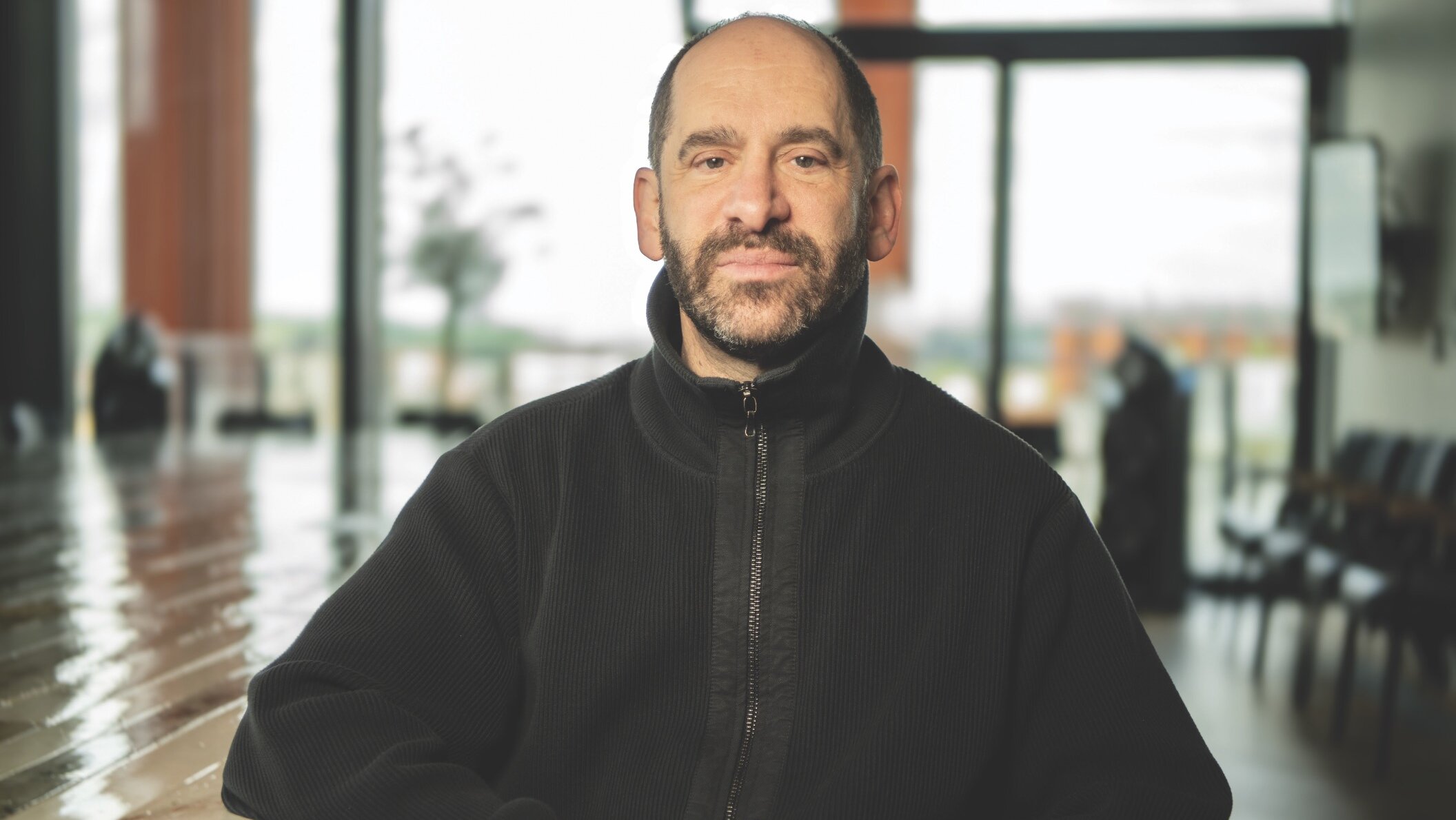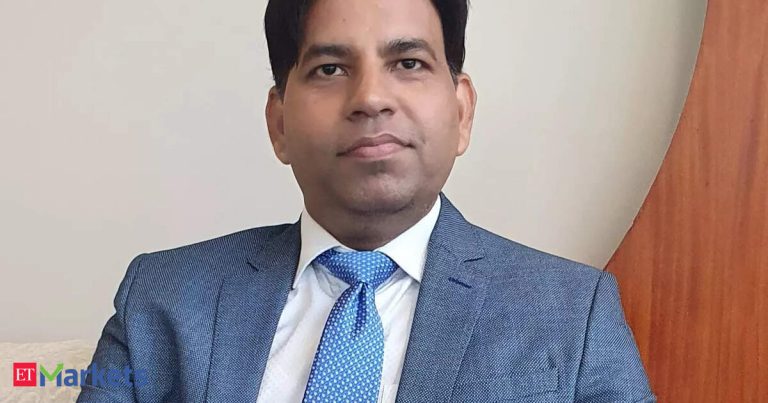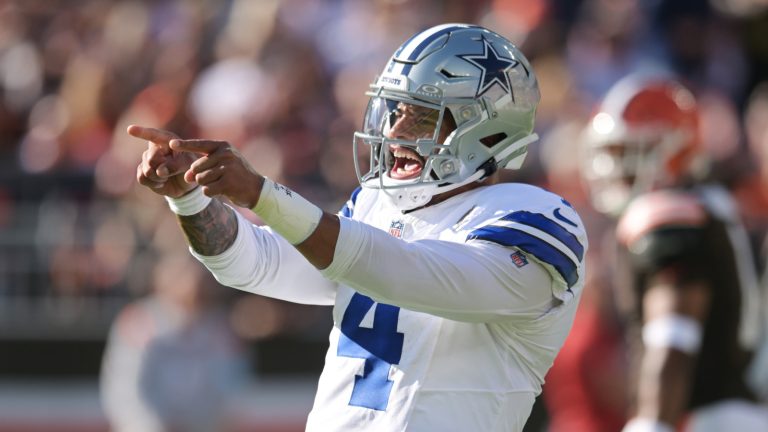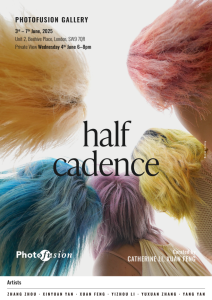David Gray’s Kings Cross office at Universal Music Publishing Group isn’t stuffed with decoration – but there are a few trinkets that hint at his story.
There’s an Arsenal scarf draped on the windowsill, right near a Ted Lasso poster nodding to Gray’s American-in-London status.
There’s also an old poster of Idle Wilds – the RCA-signed band in which Gray sang and played rhythm guitar during his 1990s industry ‘come up’.
And there’s a notable framed image on his wall of Derek Smalls – the bass player from Spinal Tap – with some fading ink messages scrawled all around it.
“When I worked at Syco, at one point in a meeting Simon [Cowell] said, ‘Has anyone seen the bass player from Spinal Tap and David Gray in the same room at the same time?’” Gray laughs. “It became a six-year running joke.”
The picture has followed Gray through every career move since – from Syco to Universal Music Publishing Group’s L.A. office, then to New York, and now to London, with the encouragement of UMPG Chairman and CEO Jody Gerson.
“What’s important to me about that picture is that even though I left [Syco] to come to Universal, the whole company sent me this picture with everyone signing it,” he says. “It reminds me that I left in the right way; we’re all still friends.”
It’s been five months since Gray began his tenure as Managing Director of Universal Music Publishing Group UK – a role he holds while also remaining UMPG’s Head of Global A&R.
Prior to taking the UK role in January, Gray was Executive Vice President and Co-Head of US A&R at UMPG – which he joined in Los Angeles back in 2013. He previously held posts as an A&R executive at Zomba and at Sony Music International, and served as senior A&R at Simon Cowell’s Syco Music, where he developed artists signed to the label via X Factor and the Got Talent franchise.
“There is still an appetite globally for British artists who don’t compromise.”
David Gray
Gray’s love for British culture is boldly apparent throughout our conversation, which flows through The Clash, The Smiths, The Cure, The Verve, Oasis, and beyond. It’s no surprise to learn from him that Mike McCormack – who Gray succeeded as UMPG UK boss – once described Gray as “the most anglophile American I know”.
A key element of Gray’s role at UMPG UK, he explains, is expanding opportunities for British writers and artists around the world.
Gray, who hails from the East Coast of the US, is unabashedly bullish about the UK’s future on the global stage – despite the British market’s well- documented recent challenges competing against Latin America, South Korea, and other fast-growing global territories on streaming platforms.
Before taking the reins at UMPG UK, Gray was the publisher behind a string of major talents, perhaps most notably Sabrina Carpenter, whom he first started working with back in 2014.
He also signed the likes of Stephen Sanchez, Julia Michaels, Shawn Mendes, and the Jonas Brothers to Universal.
The interview that follows delves into Gray’s journey from failed musician (his words!) to UMPG London honcho, plus his views on artist development, patience, and the future of British music…
You were a very successful executive in the US – Mr Sabrina Carpenter! Why accept the UK MD job at a time when British artists are struggling to break through on the global stage?
Partly because I have no doubt the pendulum will swing. I understand the market forces at work and what globalisation has done to the UK, but I also know that the UK is always producing great artists and great songs – and greatness can overcome the [UK market’s current slump].
I grew up as a huge fan of UK music. I love the fact that when the UK gets it right, the artists that emerge from here can only emerge from here. Adele, Amy Winehouse, Ed Sheeran, Sam Smith – there’s no way these artists come out of America or anywhere else.

Plus honestly, I’ve always wanted to work in London. I’ve spent huge chunks of time here, especially working on X Factor at Syco. I’ve always loved it and always felt really at home.
The UK industry is not where anyone wants it to be, but sitting here and moaning about it isn’t going to change anything – we need to do something about it. That’s my view and I know it’s Jody’s view, as well.
With that in mind, what’s your biggest message to UK writers and artists?
The one thing that I’m really cautious of, and I’ve said to the staff here and to the artists I’ve met here: do not Americanize.
“[Artists] think acting more American will sell you to America. The opposite is true.”
David Gray
You might feel like being more American is going to sell you to America; the opposite is actually true.
There is still an appetite globally for British artists who don’t compromise. Look at Fred Again..
Fred Again.. hits on an important industry topic right now. Despite not having a radio mega-hit, his fans are ‘superfans’. Are we evolving past our data obsession of the last few years? Is the industry starting to value emotional connection over sheer numbers again?
I think so. In the UK, that’s out of necessity – for anything that jumps up on TikTok, US labels are going to offer UK artists more than [UK labels can]. So in A&R here we have to find talent early, develop it, and go by our gut. Because of that we don’t have the luxury of signing things that we don’t really believe in for the long haul.
When it comes to us signing artist-writers, the questions are: Is there more here than just the TikTok moment? Is there a career? Can they play live? Can they build an audience? Are they great songwriters?

It doesn’t make sense to just ignore data, but vetting [signings] beyond that is hugely important. When I was in America years ago, there was an artist having a moment on TikTok. A co-worker and I went to the show, and – I’ll say it how it is – it was one of the worst things I’ve ever seen. The artist couldn’t sing, had no centre to himself, just bounding around the stage.
It was a big moment of realisation that all the positive data in the world can never overcome a lack of artistry.
Let’s step back: how did you get into music in the first place?
I grew up mostly on the East Coast. My dad moved around a little bit – White Plains, Rochester, Connecticut, back to suburban New York. He’s responsible for my music problem! He was really into music; when he came home from work, we’d bond over records. The Beatles was a big one, and he loved all the Philly International stuff. We sat there and listened to them, and I started looking at who produced those records, who the songwriters were.
Initially, I thought I wanted to be a musician. I started putting bands together, all the usual cliché things. I kept at it, and when my wife and I moved to Philadelphia, I put up a sign looking for band members, formed a group [Idle Wilds], and just by sheer will, moved up in the scene.
Then we got a record deal – and got dropped. Then we got another record deal – and got dropped.
Was your wife supportive through all this? Was there ever a ‘David, maybe it’s time to think about being something other than a rock star’ conversation?
Yes. When we moved to Philly she was in veterinary school, but her attitude was kind of like that of an A&R person: as long as there was progress, she was going to continue to support my music and help fund it! She was very supportive, came to gigs, put up with a lot of my whining and disappointment, me maxing out credit cards to pay for trips, all that kind of stuff.
This is the nineties. What was your impression of the music industry back then as an artist?
It was interesting. I managed [Idle Wilds] from within the band until we got signed [to RCA], after which we got a ‘proper’ manager – but even then I still kind of managed us. I never thought I’d be sitting here [as a publishing executive]; I was very anti-industry, very untrusting, as you would be as an artist. But I also wanted to learn.
To be honest I was a bit of a downer back in those days. I was signed to RCA around the same time as Dave Matthews, and he would go into the label, remember everybody’s name, make them all feel special, he was a great guy.
I would go in bitter, not talk to anyone, and sit with my A&R guy obviously thinking, ‘Fucking label’. Then, of course, when it came time for [the label team] to work someone’s record, who do you think they’re gonna work? I learned that lesson the hard way!
How did you make the transition from artist to industry professional?
I had a day job working doing credit collections at a stationery and printing company in New York. The guy who owned the company was neighbors with Barry Weiss [then at Jive Records].
This guy knew I wanted to work in the music industry – I would actually walk half an hour across Midtown to little rehearsal rooms, play piano for 20 minutes, then come back to work. He knew I was dedicated and really cared.
He set up a call, and I talked to Barry for an hour. At the end, I said, ‘I’ll do radio promo, marketing, I’ll do anything to get a foot in the door.’ Barry goes, ‘Are you fucking kidding me?!’ – in an excited way – ‘with your experience? No, no…’.
And that’s how I got my foot in the door as a very junior A&R person at Zomba. They paid me almost nothing, but I didn’t care. I just wanted a shot.
You were at Zomba during the historic multi-billion acquisition of the company by BMG in 2002. What was that experience like?
It was amazing! I loved Zomba. The culture was great, the people were amazing, and the amount of success based on the number of people was incredibly high.
Then, after two years there, I got a call from David Massey, who was at Sony, and that was my next move. [Gray became director of A&R at Daylight Records/Sony Music International].

How did you end up working with Simon Cowell?
Funny story. After Sony I went to Mercury, but it was a bad fit and I ended up leaving. I was a young executive with a wife, two small children, a new mortgage, thinking, ‘What am I gonna do?’
The phone rings, I pick up: ‘David, hi, it’s Simon Cowell.’
I legitimately thought it was one of my friends pranking me, doing an impression of Simon. I was so rude and obnoxious to him; I honestly thought I was being played.
Finally, we hang up, and five minutes later, Sonny Takhar [then at Syco] calls: ‘Did you just talk to Simon?’ I was like, ‘Oh my God!’
I told Sonny what happened, and he laughed: ‘Knowing Simon, he probably now likes you better because you weren’t super nice.’
My time at Syco was amazing. Everything Simon promised me he would do, he did.
After Syco you made the leap to UMPG. How did you transition from labels to publishing?
After a while – and it had nothing to do with Syco – I just wanted to do something different. I really wanted to get back to the roots of all of music, which is songwriting.
Writers and producers, or early artists – I was hungry to get back to that.
I called my attorney and asked what was out there. He said, ‘There’s nothing out there, but I bet Universal would be interesting because they don’t have a pop guy like you.’ That was over 11 years ago now.
You’ve worked with Jody Gerson for almost that entire tenure. What makes your relationship work?
Jody is easily the best boss and mentor I’ve ever had. And I’m not saying that because I’m still working for her.
When I went to her and said, ‘Hey, my wife hates L.A., I’d still love to do this job, what can I do in New York?’ she enabled me to do my job from New York.

Then, when she and I conceived of [UMPG’s] Global Creative Group, which focuses on songwriting collaborations across genre and geographical boundaries, she continued to support it wholeheartedly. Then she offered me my dream job of heading the UK office.
She’s allowed me to sign who I’ve wanted to sign. She’ll question things, as she should – ‘Are you sure about this?’– but she backs me completely once I’ve decided. And her approach toward me is the same when it comes to those I’ve wanted to hire. I’m incredibly fortunate.

How are you going to differentiate UMPG UK from the other major publishers? What are you trying to implement that appeals to people above and beyond the number that’s written on the cheque?
I’ve been very careful when I talk to people not to say ‘it’s a new day at UMPG in the UK’ because I inherited a fantastic team and great roster from Mike – and Mike was, and is, incredible. But when a new person starts, they want to do it their way, and that’s certainly true for me.
Our aim is to do early songwriter development before anybody else. You can already see that in the [new artist/writers] we’ve signed like Skye Newman [pictured inset], Kerr Mercer and Pozer. And we have a brilliant head of A&R in Pete Simmons who has a fantastic ear, is great with artists and writers and is a wonderful leader.
“We’re not a bank. We’re not just ‘collectors’. We’re a music company.”
David Gray
This office has a great track record of signing writers/artists at their earliest stages, and helping to develop them to become iconic globally – Adele, Coldplay, Mumford and Sons, to name a few – and we want to build on that legacy. But it’s not all just about early development.
We will invest in established or rising talent if two things are true – and this comes straight from the ethos Jody has long established: One, if we believe, wholeheartedly, that it’s a real career artist or writer; two, just as important, if we believe we can make a true positive difference in their career.
We’re here, open for business, and – when we really believe in something – we’re being aggressive.
We’re not a bank. We’re not just ‘collectors’. We’re a music company, and we want to find, sign and develop amazing talent.
I remember seeing Sabrina Carpenter sitting next to Sir Lucian Grainge at a Universal Grammy showcase a few years back. At the time, I thought, ‘Why has Lucian got the Disney girl on his table?’ But it kind of shows that when a major music company decides to throw everything behind an artist, it can still deliver. Do you still believe that?
Yes, with a caveat: they don’t make too many Sabrina Carpenters!
She’s an artist who, uniquely before she [‘broke’] had eight years’ experience, made five albums, toured, had done TV, probably had made her share of mistakes before really figuring herself out and had grown to the point of being ready to take over the world. She essentially had more than 10,000 hours chalked up.
She also has incredible ambition and drive, and her level of intelligence is off the charts.
To answer your question: whichever label group you are – if you throw everything at somebody who doesn’t have much ambition, isn’t a good songwriter, doesn’t have a view of themselves as an artist, doesn’t want to do the hard work – it doesn’t matter. I learned that the hard way, coming up in this business.
If I could give you a magic wand right here, right now, and you could change one thing about the industry, what would it be and why?
I would create a mandatory amount of patience in A&R. Look at the Grammys [last year] and the Best New Artist category: Sabrina Carpenter was nominated after 10 years, six albums. She changed labels. And it was a similar story for the other nominees on that shortlist. Simon used to say, ‘The clues are out there. You just have to pay attention to them.’ He was right.

I’ll give you an example. When we signed Julia Michaels, she went through a bit of a rough patch at the beginning. We were patient with her, her management was patient with her, and perhaps most importantly she was patient with herself.
She didn’t give up, we didn’t give up. Now she’s probably more successful as a writer than she’s ever been. I’m not taking credit for anything – Julia is an amazing songwriter and artist, and that’s the reason it’s all happened. But the point is, I never stopped believing. Patience is key.
How do we all ensure that a significant portion of the music most of us hear in the future isn’t written by AI?
From a creative standpoint, I’m naive enough to think that the public still wants a real voice and the beautiful imperfections of human beings. I love thinking about weird lines like the famous ‘the movement you need is on your shoulder’ [from The Beatles’ Hey Jude]. No [AI platform] would ever write that; it’s not quite sensical, yet everyone remembers it.
There’s no denying that AI is gonna play a role in music’s future, and I’m certainly glad that Jody and all of UMG, really, are focused on making sure that artists and songwriters are fairly compensated wherever technology takes us.
“The human brain switches off if something’s too predictable.”
But when you look at what some producers are doing now, typing ‘write a Selena Gomez song’ into [AI platforms] – the result is so cliché, it’s horrible. I believe the human brain switches off if something’s too polished and too predictable.
The happy accidents, the note that’s kind of played wrong but you like it, the way a singer bends the note that is off-key but still works, or the timing you weren’t expecting. As a listener, you can hear it all and recognise it all. No matter how good AI gets, it still can’t replace that.
Why David Gray believes his new UK role can ‘really help expand UMPG’s global efforts’
In addition to leading UMPG’s office, David Gray remains Head of Global A&R at the company, which sees him steer its Global Creative Group (GCG).
The GCG aims to expand creative opportunities for Universal writers beyond their home country – and potentially to help them expand beyond the genres in which they’ve made their name.
Examples of its successes to date include Luna – a collaboration between Colombian artist Feid and American producer ATL Jacob, which topped local charts in Spain, Bolivia, Chile, and elsewhere.
Universal’s GCG also facilitated collaborations between US producers and Brazilian artist Luísa Sonza for her third album, Escândalo Íntimo, and brought UK writer-artist Poppy Baskcomb into the fold for Tell Me What You Want by French duo Oden & Fatzo. It’s also enjoyed success bringing in international writers to work on chart-topping and/or award-winning records for artists in Italy, South Korea, China and elsewhere.
Says Gray: “After starting the Global Creative Group three years ago, we’ve put together numerous multi- national songwriting camps and sessions that have brought in writers from all over the world to write for, say, K-pop, J-pop, the Indian market, Nigeria, Brazil, and more.“The great artist from Mexico, Carin León, wanted to write with the top Nashville songwriters, so [Chairman and CEO of UMPG Nashville] Troy Tomlinson, who runs our office there, and [Senior Director] Roxy King, our A&R, embraced that completely. This global approach has been hugely successful: we’ve had more than 100 releases as a result of these camps and collaborations, and it’s brought together our writers from across 17 different territories to date.”
Adds Gray: “Heading the UK office brings me closer to our other European offices and songwriters, which will really help us expand our global efforts. Oh, and we’ve sent six of our young songwriters on scholarship trips to other territories, and have another 13 already planned for this year.”
Gray credits UMPG’s global team with playing important roles in making the GCG successful, including: Bertil David [MD, France]; Alexandra Loutikoff [President of Latin America and U.S. Latin] in Miami; Florina Krampen [Director of Global A&R] in the UK; Patrick Pitz [Senior Director, A&R] in Germany; Lucrezia Savino [A&R rep] in Italy; Lucas Sorgini in Brazil; Yena Kim in Korea, and Hiroaki Doi [Head of Creative/A&R] in Japan.

MBUK is available as part of a MBW+ subscription – details through here.
All physical subscribers will receive a complimentary digital edition with each issue.Music Business Worldwide







